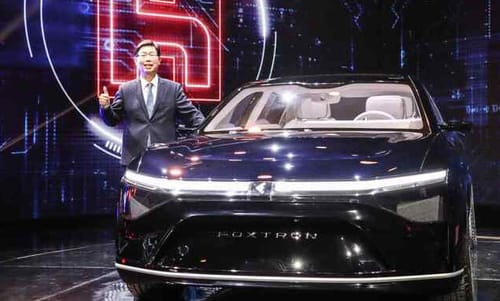 |
| Foxconn presents a prototype of an electric car |
Taiwanese tech giant Foxconn has launched its first three electric vehicle prototypes, underscoring its ambitious plan to move away from the consumer electronics manufacturing role of Apple and other tech companies.
The company hopes to turn the booming auto industry into a $35.78 billion business in just five years.
At the annual Foxconn Technology Day in Taipei, the Taiwanese company presented two models of electric cars and a prototype of an electric bus.
“Last year, we carried out about one cooperation project each month to secure the supply chain performance and potential market for electric vehicles,” said the company president.
The company's goal is to generate NT$1 trillion in annual sales of electric vehicles by 2026.
Foxconn's sales in 2020 totaled NT$5.35 trillion. It is estimated that its electric vehicle business could add more than NT$10 billion for the first time this year.
Domestic manufacturing is a major trend in the electric car industry, as producing cars closer to where they will be on the market helps automakers keep costs down. The company is expected to publish details of its plans to produce electric cars in Europe soon.
It took less than a year for the company to show its electric car to the public. The three electric vehicle prototypes are manufactured by Foxtron, a joint venture between Foxconn and Yulon Motors, a Taiwanese automaker founded nearly 70 years ago that makes Nissan and Mitsubishi cars for the domestic market. It also has its own brand Luxgen.
Foxconn announces electric car project
Types C, E and T are designed for mass production. They can also be used as reference models and brands can customize them to their own specifications.
The company produces cars and buses of brands in China, North America, Europe and other markets.
The company said: The Model C will hit the market in 2023. The Model E will be released later. The public transit Model T will arrive in southern Taiwan early next year.
The three electric vehicle prototypes are based on the design of MIH Consortium, an open hardware and software platform led by Foxconn.
MIH aims to reshape the traditional automotive supply chain by setting industry standards and developing a suite of hardware and software. Automakers can use these kits to reduce the development time and cost of developing cars.
